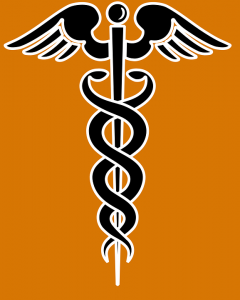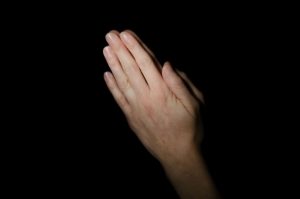The mystical component of Judaism, often referred to as Kabbalah, is relatively little known to modern Westerners. Although developed during the Middle Ages, Kabbalah’s 20th-century practitioners who would have been able to carry on the tradition nearly all perished in the Holocaust (Cooper, 13). It is possible that up to 80 percent of religiously observant Jews in Europe may have been murdered by the Nazis. This means that “most of the great teachers [of Judaism] were wiped out, and many lineages of hasidic and kabbalistic transmission were completely destroyed.” Judaism largely took on a different nature, with Jewish spirituality nearly becoming a thing of the past (Cooper, 13).
It fell to Reb Zalman Schahter-Shalomi and Reb Shlomo Carlebach to develop innovative thinking within Judaism, launch a major paradigm shift, and “open gates of awareness that have been jammed shut for hundreds of years” (Cooper, 13). Believing that tradition and ritual are still valuable in a modern world, these leaders honor the major texts of the Jewish faith – the Hebrew Scriptures (traditionally called the Old Testament of the Bible), the Mishnah (Oral Law), and the Talmud (the accumulation of commentaries to explain the Mishnah) – and use them as a base to study and understand Jewish mysticism (Cooper, 15-19).
Kabbalah, as laid out beautifully and compellingly by the late Rabbi David Cooper in God is a Verb: Kabbalah and the Practice of Mystical Judaism, offers Jews and non-Jews alike spiritual wisdom to enrich our daily lives. Notably, Kabbalah has amazing and comforting parallels with insights from paranormal research, which means that spiritual explorers can take heart that these deep wells of wisdom can be accessed in several ways. Here we will examine Kabbalah and paranormal insights in the area of consciousness and its relationship with death and dying, reincarnation and karma, and the nature of heaven/the afterlife.
What exactly is consciousness? This has become a complex question, of interest not only to laypeople but also to scientists in many fields over the past few decades. The simplest dictionary definition is merely awareness, the opposite of being unconscious, which we can all understand. However, scientists are discovering, from studies of the brain, for instance, that there is much more to it. Where does consciousness arise in the brain?  In the words of neurosurgeon Eben Alexander in his best-selling book, Proof of Heaven, we have almost no clue as to what the mechanism of consciousness is; however, we can assert that “consciousness is the basis of all that exists” (Alexander, Proof, 154). Alexander discovered during his life-threatening coma that, amazingly, that he was “encountering the reality of a world of consciousness that existed completely free of the limitations of my physical brain” (9, Proof, italics in original). In other words, while the brain plays a significant role in human consciousness, the brain is only part of the story; the rest of the story brings us into the realm of mysticism.
In the words of neurosurgeon Eben Alexander in his best-selling book, Proof of Heaven, we have almost no clue as to what the mechanism of consciousness is; however, we can assert that “consciousness is the basis of all that exists” (Alexander, Proof, 154). Alexander discovered during his life-threatening coma that, amazingly, that he was “encountering the reality of a world of consciousness that existed completely free of the limitations of my physical brain” (9, Proof, italics in original). In other words, while the brain plays a significant role in human consciousness, the brain is only part of the story; the rest of the story brings us into the realm of mysticism.
For the Jewish mystical tradition, Kabbalah, human consciousness is indeed awareness but on a continuum with the whole of human existence and the universe. In this mystical understanding, heaven and earth are inseparable, as are the spiritual and earthly realms; we are all intimately connected, and “creation is made up of spheres of consciousness” (Cooper, 35-39). For the Kabbalists, “through our reality, however limited it may be, we have access to all others;” when we add to this dimension the aspect of conscious free will, “the importance of our potential impact on the unfolding of the universe is enormous” (Cooper, 39).
Furthermore, “whatever happens anywhere in the universe reverberates throughout the totality of creation. Thus our lives are affected by what is happening everywhere; moreover, whatever we do in our lives affects everything in the universe.” Therefore, whatever we do to raise our levels of consciousness, we start to mend the soul – and mend the world (Cooper, 179).
What amazing responsibility – and potential!
While this may seem esoteric and perhaps too immense to grasp, there are practical and positive implications for our everyday lives at both the individual, personal level and on behalf of the common good. These can be discerned through paranormal research.
Higher levels of consciousness. The mystical tradition encourages us to find ways in our daily lives to raise our levels of awareness. Why is this important, especially in a world that is not only complex, difficult, and even dangerous but also for us in the West who live very busy, stressful lives with little quiet time? Eben Alexander argues in “Implications of the Emerging Science of Consciousness for Prayer and Divine Experience” that understanding the basic truth that “each of us is truly One with the universe” (159) can enhance our ability to heal – ourselves and the world.  As Alexander notes, “there is reason for hope in much of the emerging science around the nature of consciousness, especially for those who commit to a regular practice of developing their relationship with more primordial aspects of the universal mind by going within (meditation, centering prayer, etc.)” (Alexander, “Emerging Science,” 158). Prayer need not be viewed as belonging solely to religious people or communities; rather, developing higher levels of consciousness through prayer and other practices enables our human will to join with “a higher, ‘universal’ will” for greater social benefit (Alexander, “Emerging Science,” 160).
As Alexander notes, “there is reason for hope in much of the emerging science around the nature of consciousness, especially for those who commit to a regular practice of developing their relationship with more primordial aspects of the universal mind by going within (meditation, centering prayer, etc.)” (Alexander, “Emerging Science,” 158). Prayer need not be viewed as belonging solely to religious people or communities; rather, developing higher levels of consciousness through prayer and other practices enables our human will to join with “a higher, ‘universal’ will” for greater social benefit (Alexander, “Emerging Science,” 160).
Banishing the fear of death. The Kabbalah tradition teaches about death, the dying process, and the afterlife at many levels, and consciousness is an integral component. When we begin to understand that consciousness is beyond the physical brain and body, that the various levels of our souls are intricately linked to the wider universe and the ultimate Divine Source/God (Cooper, 96-99, 106-07), and that the soul never sleeps/dies (Cooper, 144), we can begin to relate this wisdom to our lives and the lives of our fellow beings. Paranormal research confirms – from many angles, as we have maintained elsewhere – that “there is no death, and there are no dead” (Butlers). Further, as the Kabbalists maintain (Cooper, 264), all souls are ultimately redeemed, and there is mercy for the entire universe. There is no hell to speak of and the wicked are not punished forever (Cooper, 292-95). These facts too are confirmed by paranormal research – one example being the revelations by Sir Arthur Conan Doyle, for two years after his death, through a medium. How might our troubled world be changed for the better if most of us stopped fearing death?
Reincarnation and karma. Kabbalah also addresses the issue of reincarnation, the journeys of our souls through a number of earthly lives. Cooper states, “the lower soul must go through purification, and most of us are reincarnated for the purpose of raising more [divine] sparks [of holiness]. Still, there are some who consciously go through their [crossing-over] transition and attain a level of reality that in Kabbalah is called tzaddik. They have achieved life eternal. We can accomplish this over many lifetimes, or, with committed spiritual practice, we can do it in this one” (Cooper, 232; see also 265-71). Reincarnation has been demonstrated throughout the world (see Head and Cranston and Fisher, below, for instance), despite its denial in traditional Christian and Western thought. As closely related to our striving for higher consciousness and the spiritual growth of our souls, reincarnation is also closely related to karma, the law of cause and effect. As we have noted earlier, our individual selves and our society in general could be vastly improved if we embraced and truly lived out the truths of reincarnation and karma.
 We have only touched here on the life lessons that can be learned through the study of Kabbalah – Jewish mysticism – and paranormal research. Readers who may wish to explore Kabbalah further to develop practices to grow spiritually and raise their consciousness can find many exercises and prayers in God is a Verb. We know, of course, that there are many among us who pray, meditate, read spiritual works, attend religious services, care for others, do tremendous good in our communities and still behave unethically at times, hurt our fellow human beings, routinely act out of greed and seek power over others. The lesson of the wisdom of Kabbalah, however, is that the striving for higher levels of consciousness and true personal spiritual growth can – and should – merge with daily ethical actions on behalf of the common good to create a healthy society that benefits everyone.
We have only touched here on the life lessons that can be learned through the study of Kabbalah – Jewish mysticism – and paranormal research. Readers who may wish to explore Kabbalah further to develop practices to grow spiritually and raise their consciousness can find many exercises and prayers in God is a Verb. We know, of course, that there are many among us who pray, meditate, read spiritual works, attend religious services, care for others, do tremendous good in our communities and still behave unethically at times, hurt our fellow human beings, routinely act out of greed and seek power over others. The lesson of the wisdom of Kabbalah, however, is that the striving for higher levels of consciousness and true personal spiritual growth can – and should – merge with daily ethical actions on behalf of the common good to create a healthy society that benefits everyone.
Resources
Alexander, Eben. “Implications of the Emerging Science of Consciousness for Prayer and Divine Experience,” in Thomas G. Plante and Gary E. Schwartz, eds., Human Interaction with the Divine, the Sacred, and the Deceased: Psychological, Scientific, and Theological Perspectives, 151-63. Oxfordshire: Routledge, 2022.
Alexander, Eben. Proof of Heaven: A Neurosurgeon’s Journey into the Afterlife. New York: Simon and Schuster, Inc., 2012.
Butler, Tom and Lisa Butler. There is No Death and There are No Dead. Reno, NV: AA-EVP Publishing, 2008.
Cooper, David A. God is a Verb: Kabbalah and the Practice of Mystical Judaism. New York: Riverhead Books, Inc., 1997.
Fisher, Joe. The Case for Reincarnation. New York: Bantam Books, 1985.
Head, Joseph and S.L. Cranston, eds. Reincarnation in World Thought. New York: Julian Press, 1967.
Plante, Thomas G. and Gary E. Schwartz, eds. Human Interaction with the Divine, the Sacred, and the Deceased: Psychological, Scientific, and Theological Perspectives. Oxfordshire: Routledge, 2022.
